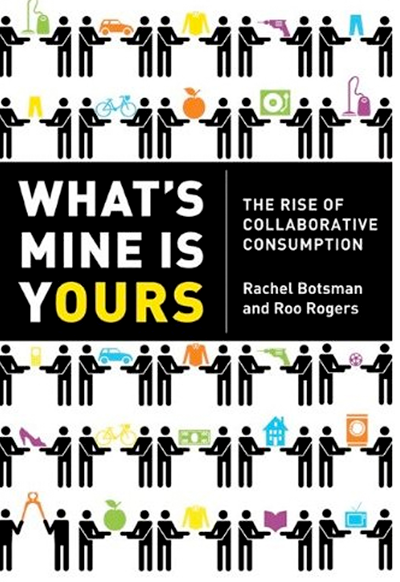
Cognitive Surplus + Collaborative Consumption. Mix it up, stir it up, add a social agenda and what do you get? Good Times.
What we know is that someone born in 1960 has stared at the television set for roughly 50,000 hours. Yes, that’s right – this equates to over 5 and 1/2 solid years of passive T.V. consumption. Even more astounding as Clay Shirky explains, is that hijacking our time spent on this one-way viewing practice can, if we so choose, be leveraged as a social asset. “The buildup of this free time among the world’s educated population – maybe a trillion hours per year – is a new resource.”
Let’s not forget that Millennials are going to have careers that occupy 50,000 hours (ie. 25 years) as opposed to the 100,000 hours (ie. 50 years) of their parents. Compression of the traditional job has been occurring for sometime as organisations everywhere have learned how to make do with smaller bits of our time. As the futurist Charles Handy explains, CEOs know that, “Half the people paid double, working twice as hard and producing three times as much, has to be good sense.” We should acknowledge too that we are also living longer – if you are currently living in the UK you can expect to live 80+ odd years.
So the question remains, how might we best use all this time?
Well, we have started by putting more energy into being froogle, not merely motivated by recession busting inclinations, but because it can bring a spirit of connectedness as well good old fashion fun.
Botsman makes the key observation that people are increasingly concerned with access rather than just ownership (Airbnb.com is doing just fine and has disrupted the hotel industry for good).
The current explosion of bartering, lending, trading, swapping, and sharing can be viewed as a step in the right direction for not only is it a more resourceful way to live, but it may also just make good sense.
Watch a video on the subject Here
Learn more about how travel can be a good way to flex you new found flexibility – and good for your health too
